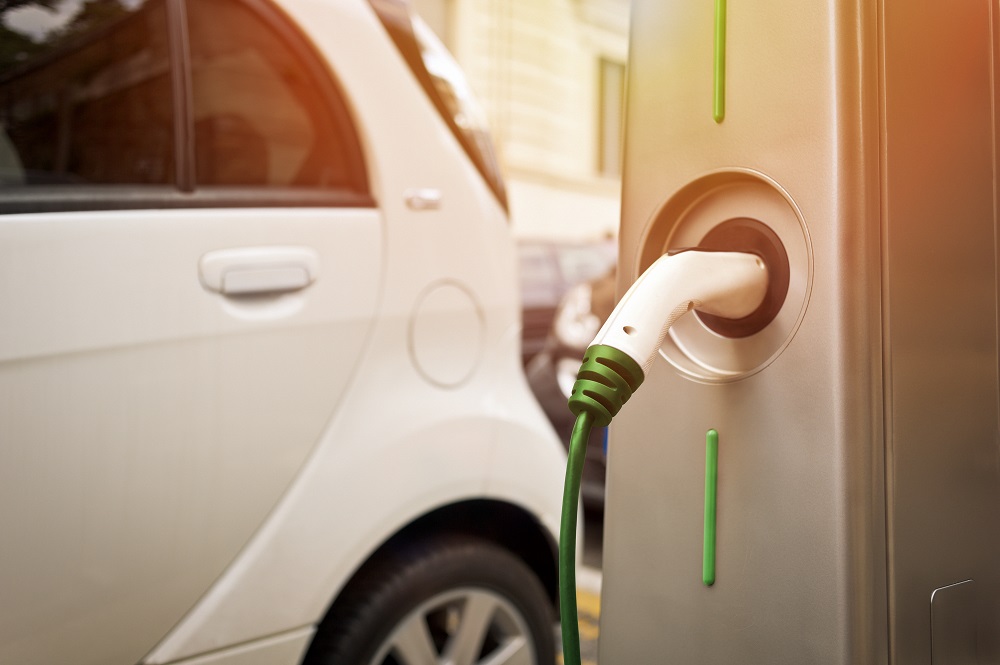Building an electric car means nothing unless drivers accept them

Building an electric car is part of the biggest transformation the auto industry has experienced in a hundred years. Three trends are driving the transformation:
1. Vehicle electrification
2. Autonomous vehicles and versions of autonomy, like automated driving assist systems (ADAS)
3. Shared mobility, where passengers buy vehicle miles rather than buying your own vehicle
All three trends interconnect and, at some point in the near future, we’ll probably be driving vehicles that we don’t own, are electrified and are autonomous. Overall, electrification is a trend that seems destined to happen, and that’s one reason why so many government agencies around the world are supporting and pushing for electric vehicles.
But, how do we get there?
Building an electric car
As the electrification, autonomy and shared mobility continue aligning and consumer interest increases, several players are spending real money to push technological advancement, as each one attempts to gain the competitive edge. These include traditional OEMs, newer companies like Tesla, and hundreds of startup companies, especially in Asia that are deeply involved in producing electrified, autonomous vehicles. All are competing to bring an electric vehicle to the consumer in the hope of dominating this emerging market.
What is driving this broad spectrum of hopeful players is the chance to jump on this trend with a product that’s cheaper and easier to develop than a conventional one. That’s why you see a lot of electric vehicle startups entering the automotive industry. These new companies will push the established automotive companies to be better, get to market faster and push innovation further.
Back in the 1990s, General Motors started the EV1 program, which had experienced good customer acceptance for early adopters and critics. This vehicle program never panned out because these expensive electric vehicles appealed to a very small group of mostly environmental evangelists who could afford the steep cost and didn’t mind the woefully short driving range of 80 to 100 miles.
Range anxiety puts the brakes on sales
Over the past decade, with government incentives and growing environmental concerns, electric vehicle technology has become a product offering with true potential. But the same old problems have kept being raised and had yet to be solved: range anxiety and cost.
Range anxiety is real. Drivers worry if they can get from point A to point B on a charge. Can they take a family vacation in an electric vehicle? What about the impact of weather, traffic and aging batteries on battery range? Only when the industry can successfully address those anxieties will the world embrace electric vehicles.

Battery technology is key
Technology is as much a driving force as anything, especially the battery, which is the heart and soul of an electric vehicle. Big technological changes are helping to significantly improve energy density in the battery. This will ease anxieties as vehicles will go further on a single charge and charging times are reduced.
Year-after-year the battery technologies are getting better translating to higher range on a charge and lower battery costs, making vehicle a more affordable investment. For example, the 2011 Nissan Leaf was priced at $33,780 and provided a 100 mile range per charge compared to the 2019 Nissan Leaf priced to begin at $29,990 with a 226 mile range per charge.
Consumers are more accepting of electrification as range and cost improve; the 2018 Nissan sold almost 5,000 more Leafs than in 2011. Although people are beginning to see electric vehicles as an affordable, reliable alternative, the transformation still has a way to go before they’re economically feasible for most of the driving population.
What will accelerate the advancement of electric vehicles is when they’re cheaper to own and operate than internal combustion vehicles. Until the total cost of ownership or cents per mile gets to the parity level with internal combustion vehicles, drivers will remain hesitant to make the personal investment.
What the future of electric vehicles means to the world
I believe we have a responsibility to the globe to make vehicle electrification and autonomy happen. Autonomous vehicles have the potential to save millions of lives and electrification will make the world better by cleaning up our cities, our environment and, when done right, will leave a much smaller carbon footprint. Plus, electric cars really deliver a higher quality driving experience. They’re fun, enjoyable and quiet, so once people drive them and experience the benefits of electric vehicles, the customer acceptance should increase.
It’s an exciting time, watching the transformation of the automotive industry as it moves from the internal combustion engines to full electrification.
In our next blog, I’ll go further in discussing the challenges and benefits of building the hardware and software of the electric vehicle. In the meantime, learn more about what else is happening with electric vehicles.
About the author
Dave Lauzun is the vice president of automotive and transportation industries at Siemens PLM Software, a business unit of the Siemens Digital Factory Division. Dave started his role in Siemens PLM Software in 2016. Prior to joining Siemens, he had more than 30 years of automotive and industrial experience in key strategic leadership roles. He held multiple positions at Chrysler, including positions in design, development, manufacturing, quality, program management and vehicle development). He was also the executive vice president of engineering for Bright Automotive, a leading automotive start-up company developing an all-new hybrid-electric van, and the leader of customer engineering at Cummins, a leading diesel engine manufacturer. Dave has a Bachelor’s degree in mechanical engineering from Michigan State University, a master’s degree in mechanical engineering from the University of Michigan, a master’s degree in materials engineering from MIT, and an MBA from the Massachusetts Institute of Technology.


